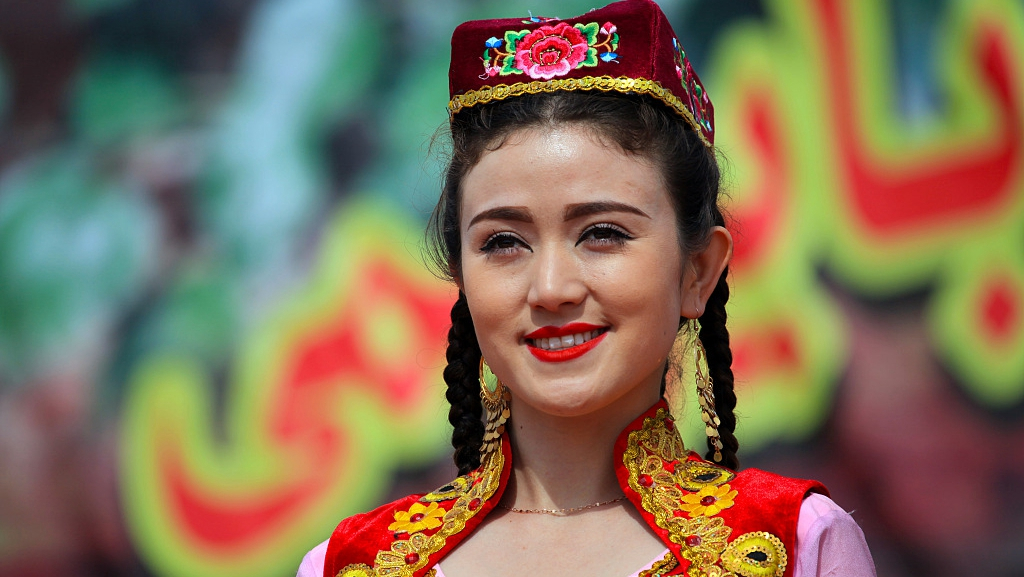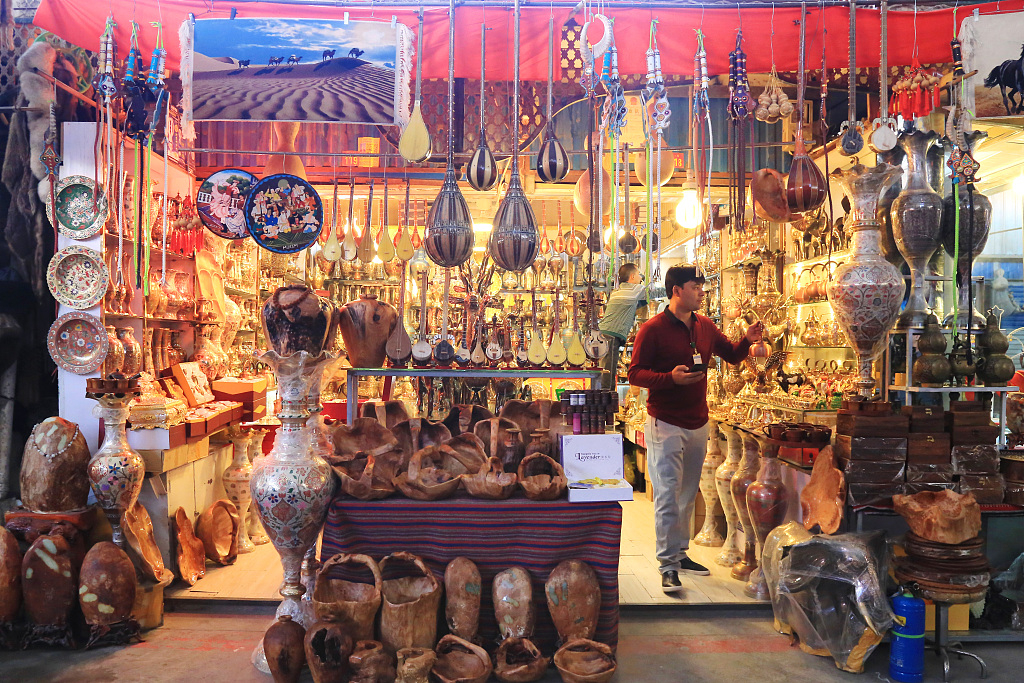
A Uygur girl during a dance performance, May 21, 2016. /VCG Photo
A Uygur girl during a dance performance, May 21, 2016. /VCG Photo
Editor's note: Sultan M Hali is a Pakistani writer and security analyst. The article reflects the author's opinions and not necessarily the views of CGTN.
Last month, the U.S. Congress held a hearing on the human rights situation in Xinjiang. Earlier, the Secretary of State Mike Pompeo described it as "China's attempt to erase its own citizens." This news shocked me because the Xinjiang I know for the last decades and have been visiting regularly is full of hospitality.
It is true that foreign terrorists incited Muslim extremists, and some Western media gave biased reports on Xinjiang. They claim that Uygurs are being held in places akin to those in the Nazi era. To support their malicious claims, they present blurred satellite pictures as evidence and used fabricated interviews with Uygurs tearfully claiming to have escaped from the "concentration camps."
In contrast to the allegations of the Western media, the Chinese government has adopted concrete measures to deal with the Xinjiang Uygurs issue. Regarding this, I am a witness to the pragmatic steps that have been adopted by China to curb extremism and eradicate the scourge of terrorism, have borne fruit.
My first visit to Urumqi, the capital of the Xinjiang Uygur Autonomous Region, was in 1974 when the area was not yet developed. My maiden visit as a mere second lieutenant in the Pakistan Air Force is deeply etched in my memory.
As we alighted from our military aircraft at Urumqi, a group of Chinese working on the side of the runway lined up beside the gangway and started shouting welcome slogans. We were neither VIPs nor senior officers, but the welcome displayed by these ordinary Chinese was so heartwarming that I still feel its geniality.
We made frequent trips those days, and one Friday, we went to a mosque in Urumqi to offer our prayers. Even in those early days, when Chairman Mao was alive, there were no restrictions, and Muslims in the mosque greeted us warmly. I have followed the developments on subsequent trips.
During my visit to Urumqi last Ramadan, I found Muslims there praying and fasting contrary to Western propaganda.

A bazar in Kashgar, Sept 19, 2018. /VCG Photo
A bazar in Kashgar, Sept 19, 2018. /VCG Photo
At the Xinjiang Islamic Institute, which was established 28 years ago, I had a long discussion with the renowned Muslim Scholar Adudulrekep Tumniaz, who is the president of the Institute. Being an erudite academic, his views regarding Islam as well as the Chinese Communist Party were very enlightening.
I had visited the Institute earlier, but a tour of the new campus with modern classrooms, an impressive mosque, a well-equipped library, cozy dormitories and state-of-the-art sports facilities was a pleasant surprise. The new Xinjiang Islamic Institute campus, which was completed in 2017, can compete with any modern Western university.
During discussions with various scholars, I learned that the Chinese Constitution ensures freedom of religion, and Islam is no exception. However, Western critics and detractors of China have been spreading rumors about the practice of Islam being curtailed.
Extremists have been distorting the tenets of Islam, quoting verses out of context and leading the faithful astray with their particular brand of religion to fulfill their heinous designs. Thus, it was refreshing to learn that the Islamic Institute has picked up the mantle to produce religious teachers who can become imams in various mosques and university teachers to guide the faithful and protect them from extremism.
This July, the Chinese government invited scholars from France, Italy, New Zealand, Pakistan, Poland, Russia, Sri Lanka and Thailand to visit Xinjiang. It was an honor for me to represent Pakistan. We discussed the Uygur issue with international academics and sought to gauge the realistic situation.
A seminar with renowned Chinese experts from Xinjiang University and the Chinese Academy of Sciences was very informative, as it highlighted the extent of the threat and the various steps the Chinese government has taken to protect the citizens from extremism, terrorism and separatism.

A flea market at Xinjiang University, Urumqi, Xinjiang, China, June 11, 2019. /VCG Photo
A flea market at Xinjiang University, Urumqi, Xinjiang, China, June 11, 2019. /VCG Photo
A visit to the Xinjiang Exhibition on Major Incidents of Violent Terrorist Attacks was informative, highlighting the extent of loss of human lives and property.
At the Urumqi Grand Central Market, I met two Pakistani traders who are married to Uygur women and have children. Abdurrahman and Muhammad Wakil, who have shops in the market, invited me for a cup of tea. I asked them if they had been harassed by local intelligence. They told me that they were once politely questioned about their family and never bothered again.
Touring the White Mosque in the Uygur District of Urumqi was like a breath of fresh air, as the imam informed me that prayers, fasting and even Aitekaf during Ramadan are well attended.
A tour of Xinjiang last year and the current visit presented stark contrasts. Previously there was no nightlife, the sidewalks along commercial centers were fenced, and shoppers could only enter through security gates. Because of improved security conditions, the fences have been removed. At night, we could see people of different ages and ethnic groups dancing in the square.
These concrete steps adopted by the government of Xinjiang Uygur Autonomous Region will have far-reaching benefits in restoring peace and harmony in the region. In my humble opinion, based on eyewitness accounts and in-depth visits, this is a far cry from the negative propaganda being churned out by China's detractors.
(If you want to contribute and have specific expertise, please contact us at opinions@cgtn.com.)